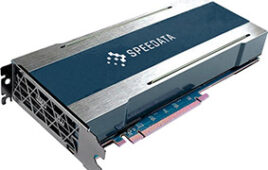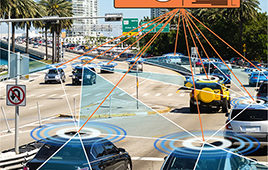UT Health Science Center San Antonio lands $11.6 million to study cardiac proteins
SAN ANTONIO (Sept. 3, 2010) – A blood test to diagnose which heart attack survivors will suffer heart failure is the goal of a new five-year, $11.6 million contract to the UT Health Science Center San Antonio from the National Heart, Lung, and Blood Institute (NHLBI).
Each year more than 1.2 million Americans suffer a heart attack. In a third of these individuals, the damage results in heart failure, a progressive condition in which the heart cannot pump enough blood to meet the body’s oxygen needs. Half of these 400,000 survivors will die within five years.
“Over the last 40 years we have drastically improved short-term survival after heart attacks, but with this study we hope to identify the three out of 10 patients who need more intensive treatment,” said Merry L. Lindsey, Ph.D., associate professor of medicine and principal investigator of the NHLBI Proteomics Center. “We will do this by studying protein fragments that are released into the bloodstream following heart attacks.”
The proteomics center includes faculty members from the School of Medicine and Graduate School of Biomedical Sciences at the Health Science Center and from the School of Engineering at The University of Texas at San Antonio.
Poring over protein fragments
Proteomics is the study of all proteins present in a sample. Researchers will scrutinize small pieces of proteins, called peptides, to determine which are active in plasma samples taken from mice within one week of an induced heart attack, Dr. Lindsey said. The particular focus will be peptides from what is called the extracellular matrix.
“The extracellular matrix is the outside environment surrounding cells, and extracellular matrix turnover regulates how the heart responds to injury,” said Yufang Jin, Ph.D., assistant professor in the Electrical Engineering Department at UTSA and a co-investigator of the proteomic center.
The NHLBI established a consortium of 10 proteomics centers in 2002 with funding for seven years. In 2009-2010, the Health Science Center successfully competed against existing centers and new applications to secure one of seven contracts. “This is a joint effort of 10 faculty members at the Health Science Center and UTSA who are working together to solve an enormously important health concern,” Dr. Lindsey said. The contract includes both basic science and clinical projects.
Matrix-centric
The focus on extracellular matrix proteins distinguishes the San Antonio group from others around the country. “Some groups are searching for cancer biomarkers in the extracellular matrix, but our group focus on post-myocardial infarction (heart attack) is pretty unique,” Dr. Lindsey said.
The center will catalog which extracellular matrix proteins are broken down into peptide fragments following a heart attack, and will evaluate each of the individual fragments for biological activity.
To do this, the proteomics center is developing new detection methods using state-of-the-art mass spectrometry equipment. Susan Weintraub, Ph.D., professor of biochemistry and center co-investigator, directs the Health Science Center mass spectrometry resource. She will lead efforts to identify the fragments.
Synthetics
Gregg Fields, Ph.D., professor of biochemistry, center co-investigator and Robert A. Welch Foundation Distinguished Professor, will study peptides’ composition and generate synthetic peptides that will be used to test for biological activity. Dr. Fields, Dr. Lindsey and Seema Ahuja, M.D., associate professor of medicine and center co-investigator, will test these synthetic peptides.
“The extracellular matrix peptides that are identified as relevant in the basic laboratory will then be measured in human blood samples to see if individual peptides can be used to predict outcomes in patients that have had a heart attack,” said Richard A. Lange, M.D., vice chair in the Department of Medicine and co-investigator/clinical lead on the project. “This is a fabulous opportunity to take results from the bench to the bedside. We are not simply making a list of what peptides are there. Our center takes this approach a step further to determine which are relevant.”
Cardiologists Robert Chilton, M.D., and John Erikson, M.D., will team with Dr. Lange on the clinical study.




